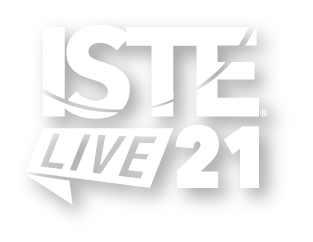

How to Discover New Mathematics: Exploration and Creativity in the Classroom |
Listen and learn : Lecture
Philipp Legner
In the school curriculum, mathematics is usually presented as "finished": Students just see the final version of thousands of years filled with exploration, mistakes and surprises. Discover how you can use manipulatives, online tools and active learning to let students "discover" mathematics in the classroom.
| Audience: | Curriculum/district specialists, Professional developers, Teachers |
| Skill level: | Beginner |
| Attendee devices: | Devices required |
| Attendee device specification: | Smartphone: Android, iOS, Windows Laptop: Chromebook, Mac, PC Tablet: Android, iOS, Windows |
| Participant accounts, software and other materials: | No downloads required in advance: we will provide short URLs during the lecture that allow participants to access interactive tools on their own devices. |
| Topic: | Project-, problem- & challenge-based learning |
| Grade level: | 6-12 |
| Subject area: | Math, STEM/STEAM |
| ISTE Standards: | For Educators: Facilitator
Knowledge Constructor
|
| Disclosure: | The submitter of this session has been supported by a company whose product is being included in the session |
| Influencer Disclosure: | This session includes a presenter that indicated a “material connection” to a brand that includes a personal, family or employment relationship, or a financial relationship. See individual speaker menu for disclosure information. |
In this presentation, we want to show participants that using mathematics in real life (e.g. research, science, engineering, or medicine) is very different from how it is usually taught in school. The historical development of mathematics was very non-linear, even the greatest mathematicians made mistakes, and many problems are still unsolved – or don't even have a solution.
We want teachers to appreciate the importance of creativity and problem-solving, and show how you can implement active, discover-based learning in classrooms (or when teaching remotely). This will include dozens of stories and examples, including some where the audience can actively participate and “explore” using their own devices. (Targeted at the middle and high-school level.)
We will use many digital tools including manipulatives, simulations, and examples from Desmos, GeoGebra, Mathigon, Surfer and Wolfram|Alpha. We will also list a number of other resource libraries where teachers can find more ideas.
In a future defined by artificial intelligence and globalisation, skills like problem-solving and critical thinking have never been more important. There is a huge amount of research supporting this, and we have included a few examples in the "Supporting research" section below.
(1) Introduction (5 min): Research and paedagogy about active learning. Lecture.
(2) History (10 min): Famous mistakes, misconceptions, and surprises in mathematical history, from negative numbers to chaos theory and non-Euclidean geometry. Lecture.
(3) Problem-solving (15 min): Skills and strategies for solving unfamiliar problems. Lecture, with some activities that participants can solve individually on their devices.
(4) Participation (15 min): Using digital tools to explore new a new area of mathematics and “make discoveries”. Participants can use their own devices and share/discuss their observations with neighbours or the entire audience.
(5) Implementation (10 mins): How to implement discover-based learning in the classroom. Lecture.
(6) Questions and Discussion (5 min)
Seymour Papert – Mindstorms (1980)
Ken Robinson – Do schools kill creativity? (2006)
Andy Matuschak – Why books don’t work (2019)
Paul Lockhart – A Mathematician’s Lament (2002)
https://www.youcubed.org/resources/the-nature-of-21st-century-mathematics/
https://www.nature.com/articles/475166a
https://medium.com/@BrainQuake/hard-fun-4edcc5dabd7a
https://mathigon.org/about#research

Philipp is an award-winning educator, and the creator of Mathigon, an online learning platform. Called a called “a true mathematical wonderland” by the Guardian and “a front-runner for a new generation of textbooks” by Common Sense Education, Mathigon is free, open-source, and used by tens of thousands of students and teachers all around the world. Previously, Philipp worked as a software engineer on Google’s education products, as well as Bloomberg and Wolfram Research. He studied mathematics at Cambridge University and mathematics education at the UCL Institute of Education in London.